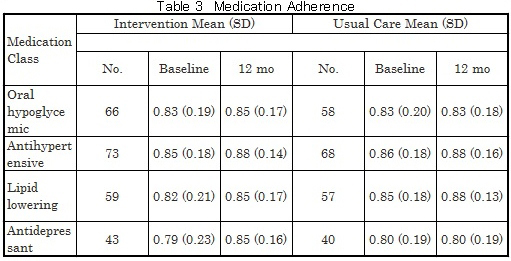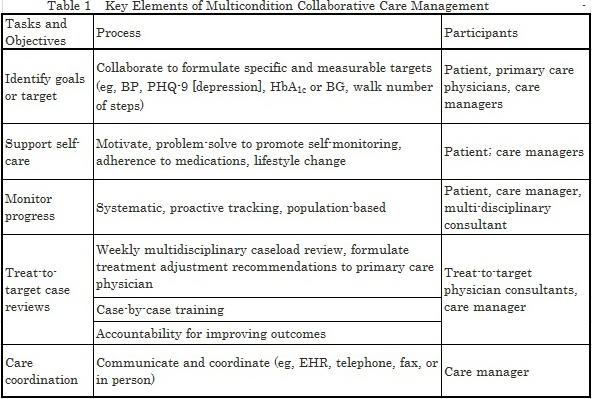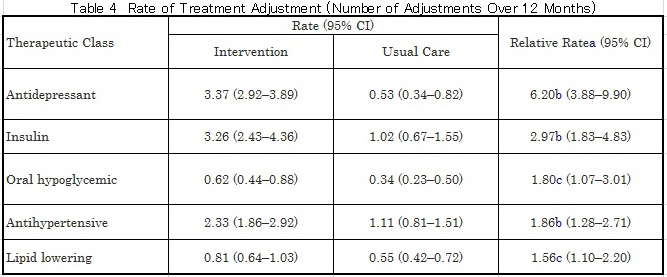【文献名】
Treatment Adjustment and Medication Adherence for Complex Patients With Diabetes, Heart Disease, and Depression: A Randomized Controlled Trial. Ann Fam Med 2012;10:6-14.
【要約】
<PURPOSE>
Medication nonadherence, inconsistent patient self-monitoring, and inadequate treatment adjustment exacerbate poor disease control. In a collaborative, team-based, care management program for complex patients (TEAMcare), we assessed patient and physician behaviors (medication adherence, self-monitoring, and treatment adjustment) in achieving better outcomes for diabetes, coronary heart disease, and depression.
<METHODS>
A randomized controlled trial was conducted (2007-2009) in 14 primary care clinics among 214 patients with poorly controlled diabetes (glycated hemoglobin [HbA1c] ≥8.5%) or coronary heart disease (blood pressure >140/90 mm Hg or low-density lipoprotein cholesterol >130 mg/dL) with coexisting depression (Patient Health Questionnaire-9 score ≥10). In the TEAMcare program, a nurse care manager collaborated closely with primary care physicians, patients, and consultants to deliver a treat-to-target approach across multiple conditions. Measures included medication initiation, adjustment, adherence, and disease self-monitoring.
<RESULTS>
Pharmacotherapy initiation and adjustment rates were sixfold higher for antidepressants (relative rate RR=6.20; P<.001), threefold higher for insulin (RR = 2.97; P <.001), and nearly twofold higher for antihypertensive medications (RR=1.86, P<.001) among TEAMcare relative to usual care patients. Medication adherence did not differ between the 2 groups in any of the 5 therapeutic classes examined at 12 months. TEAMcare patients monitored blood pressure (RR = 3.20; P <.001) and glucose more frequently (RR = 1.28; P = .006).

<CONCLUSIONS>
Frequent and timely treatment adjustment by primary care physicians, along with increased patient self-monitoring, improved control of diabetes, depression, and heart disease, with no change in medication adherence rates. High baseline adherence rates may have exerted a ceiling effect on potential improvements in medication adherence.
【開催日】
2012年1月18日

